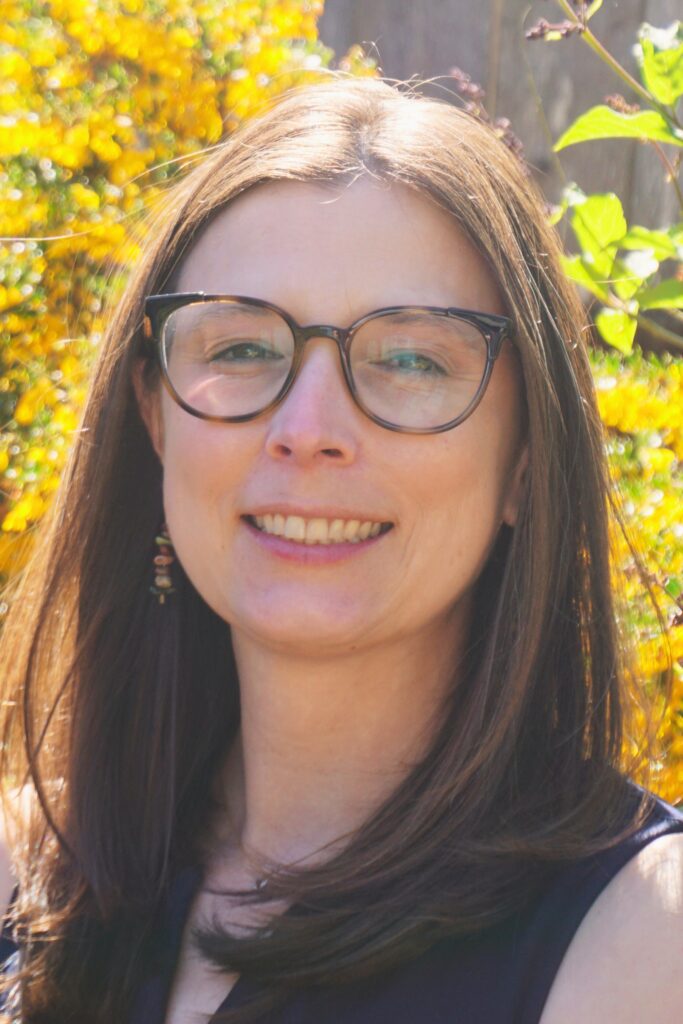Bringing passion for student achievement and a deep interest in how education meets the needs of industry, Everett Community College was pleased to appoint Jill Thornton as new Executive Director earlier this month. As Jill settles in, we hear more about previous roles, goals, and what’s next for the Center of Excellence.

You most recently worked at the Sno-Isle Skills Center. What did you do there and what K-12 system knowledge will you bring to the COE?
During my time at Sno-Isle TECH Skills Center (SISC), I served as the Comprehensive Local Needs Assessment (CLNA) Coordinator, supporting Career and Technical Education (CTE) programs across all school districts in Snohomish County. In this role, I helped align programs, goals, and outcomes to better meet regional workforce needs. I also led key initiatives including grant development—such as the Career Connect Washington Program Builder and Apprenticeship Building America grants—and launched a Regional Advisory Committee to strengthen Computer Science and Information Technology programs.
Additionally, I supported efforts to streamline CTE Dual Credit opportunities for students. However, my favorite “job duty” was having the privilege of seeing students doing some truly impressive applied learning—like making carbon fiber skateboards, building tiny homes, splicing fiber optic cables, and welding all types of metal. Watching teenagers develop real-world skills and take pride in their work was both inspiring and a constant reminder of the impact high-quality CTE programs can have.
Working within the K–12 system gave me a deep understanding of how Skills Centers and CTE programs prepare youth for technical careers. I’m excited to bring that perspective into the community and technical college (CTC) space to help build more effective and accessible pathways for students transitioning into postsecondary programs.
You also previously worked at the COE. What did you do here previously, and what interested you about returning?
I previously worked at the COE as the Director of the MechaWA grant. This was a Department of Labor grant that supported the development of Mechatronics programs at five community colleges in Washington.
I was interested in returning to the COE because the aerospace and advanced manufacturing industries are at an exciting inflection point. Emerging technologies are creating opportunities for significant innovation, particularly in areas like automation, additive manufacturing, artificial intelligence, and sustainable materials. These advancements are not only reshaping how products are made but also opening up new possibilities for workforce development and education. It’s an exciting moment to be part of the effort to align education and training with the evolving needs of these industries.
How do you see the aerospace and advanced manufacturing industries changing and evolving in the coming years? How should the CTC system adapt to those changes?
As I mentioned, the aerospace and advanced manufacturing industries are undergoing major shifts driven by automation and digitization. At the same time, there’s growing pressure to embrace more sustainable materials and processes—especially in aerospace, where the push for electrification has been gaining momentum for a while.
As these changes happen, the workforce will need to adapt just as quickly. This creates both a challenge and a huge opportunity for the CTC system. To stay relevant and responsive, CTC’s will need to continue to build on their industry partnerships, expand work-based learning opportunities for students, and ensure faculty stay trained and up to date with current trends and technologies.
What are your goals in this role? What are your priorities for your first year?
My goals in this role align closely with what I’ve shared earlier: to support CTCs in deepening industry partnerships, expanding apprenticeship and internship opportunities, and helping faculty access meaningful professional development. In the first year, I plan to focus heavily on building relationships—both with college partners and industry stakeholders—strengthening our advisory committees, and staying responsive to the evolving needs of the sector. The goal is to build a strong foundation for long-term collaboration and innovation.
What does your host college, EvCC, bring to supporting the COE?
I am looking forward to working closely with EvCC as well as all the CTC’s in Washington. EvCC has a track record of leadership, innovation, and student success that will support the COE with our mission of connecting industry and education to ensure Washington’s workforce has access to quality training and high-demand careers.
